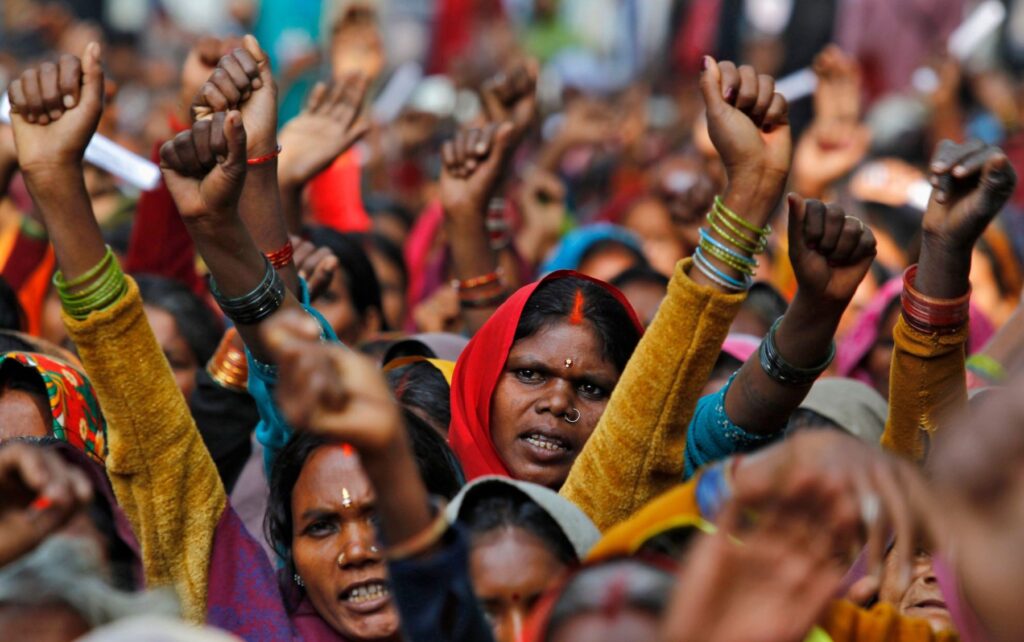Poonam Muttreja, Executive Director, Population Foundation of India, said women should not be held responsible for the surge in population.
“Whether they wish to have children or not, when to have them, and how many are really their right – nobody else’s. Families, governments, and policy-makers or society have no right to take decisions on their behalf. Women’s autonomy over their bodies cannot be determined by policies driven by population trends – incentivising women to have more children if the population is declining, or controlling their fertility if the population is rising,” she said, pointing out that regardless of population dynamics and changing fertility trends, what remains unchangeable is women’s right over their fertility and lives.
Women, according to the World Bank, account for 48 per cent of India’s population. According to National Family Health Survey-5 data, nearly one out of every four women in India is married before turning 18. The figure also indicates towards the prevalence of child marriage in the country pegged at 23 per cent, higher than the world average of 21 per cent.
One such child bride is Chaaya Devi.
Married at the age of 12, Devi dreamt of a better future for her firstborn. She wanted her daughter to become a doctor, which, however, changed after she had two more children.
“Children are god’s gift but what if you don’t have money to raise them? It leaves your other children in the constant state of suffering, too,” said the 25-year-old, who works as a domestic help in Noida and is currently expecting her fourth child.
“I consulted a government hospital doctor but she scolded me for getting pregnant again. What she does not understand is that my consent is never taken,” she said.
Her situation is not unique, millions of women in India share Devi’s ordeal due to societal and family pressure and stigma around contraceptives and abortion.
According to NFHS-5 survey, in 2019-20, only 1.7 per cent of women from the lowest wealth quintile chose abortion as compared to those in middle and highest wealth quintile at 3.2 and 4.1 per cent, respectively.
It also suggested that women with 10-11 years of education were more likely to opt for abortion than those who never went to school.
Shyamal Santra, Lead of Public Health and Nutrition at Transform Rural India Foundation said it is possible that the lower reported rates of abortion among lower-middle-class individuals in India could be influenced by a variety of factors, including limited access to healthcare, cultural or religious beliefs, or a lack of awareness about reproductive healthcare options.
Andrea Wojnar, Representative, UNFPA India and Country Director, Bhutan on State of the World Population Report (SWOP) 2023 said ensuring gender equality, empowerment and advancing greater bodily autonomy for women and girls is one of the key determinants of a sustainable future.
“Individual rights and choices should be respected, and all should be able to decide when to have children, if any, and how many. Women and girls should be at the centre of sexual and reproductive policies and programmes,” she said.
Adopting a ‘life cycle’ approach, where girls and women are empowered at every stage of their lives, gender-responsive work arrangements (for both men and women) that enable women to continue engagement in decent work opportunities in the long run, reducing barriers within the workplace, and improved access to finance will allow women and girls to pursue their lifetime aspirations and harness their untapped potential, Wojnar said.
Seema Bhaskaran, Lead-Gender at NGO Transform Rural India Foundation, said, “Adolescents and young women are only infused with patriarchal values of virginity and the sanctity of the vagina and linking it to the honour of the family. This leads to a sense of secrecy and shame about the body, menstruation, fertility, and reproductive rights.”
Talking about the situation in rural India, she said sexual abuse of adolescents and young women is high in rural areas of India and the girl child is subjected to severe trauma and risk to life as they bear children as unwed mothers.
Acording to Muttreja, India needs to continue working towards improving equitable and universal access to reproductive health services, including family planning services, so that women and men have the freedom to lead their lives the way they want to.
At the same, India needs to educate young people – especially girls – and make sure that they are employed rather than married first. Young people must be equipped with the right education and professional skills to contribute productively to the workforce and subsequently to national development, she added.

